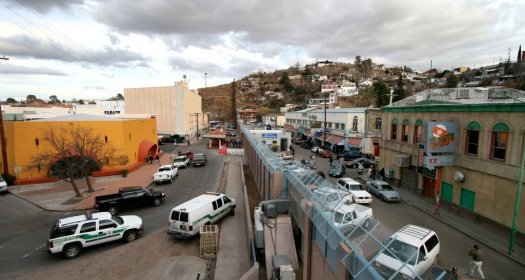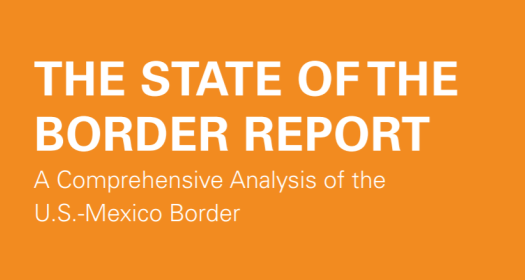Border Issues
Rhetoric and reality on the US-Mexico border are often misaligned. In an effort to promote a more realistic and holistic approach to the border, the Mexico Institute focuses on issues of economic development and competitiveness; border security and citizen security; environmental sustainability; and quality of life in the border region.
The border region is home to more than 80 million people in four US and six Mexican states and extends nearly 2,000 miles from the Gulf of Mexico to the Pacific Ocean. Its combined annual GDP is approximately $3.8 trillion and the bulk of US-Mexico trade passes through its many land crossings. The border region serves as a conduit and source of commerce, tourism, and student-exchange that is vital to both countries, and it is the site of intense binational integration and cooperation, especially on issues of shared importance, such as transportation infrastructure and the environment. Key law enforcement efforts to counter transnational crime occur in the border region, and the nature of border ecosystems, which ignore national boundaries, underscores the importance of meaningful cooperation between the two countries to protect shared natural resources and habitats.
Each year, the Mexico Institute, along with the Border Trade Alliance, hosts its high-level "Building a Competitive US-Mexico Border" Conference, which focuses on improving border management in order to strengthen the competitiveness of both the United States and Mexico. Our most recent conference, the sixth in our series, was held in June 2019.
Watch our Sixth Annual Building a Competitive US-Mexico Border ConferenceEvery few years, the Mexico Institute works with its research partners to author a comprehensive report on the state of border management and the US-Mexico border region, focusing on four core areas: trade and competitiveness, security, sustainability, and quality of life. The report is based on the premise that, rather than consider each issue individually, the interdependent nature of topics like trade, security and sustainability demand the border be approached from a more holistic perspective.
Read the Latest State of the Border ReportOther Initiatives on Border Issues
-
US-Mexico Regional Economic Competitiveness Forums 2014
-
Awards for US-Mexico Cross-Border Cooperation

